Fifty-five years ago, why were the Kuomintang forces driven out of Macau (Part 2)
Author: Cheng Weiheng (member of "Storytelling on the Frontier of the Empire")
The above mentioned how the Kuomintang established a network of organizations in Macau after the war to engage in anti-communist work, including the "work behind enemy lines" that failed one after another. Today, let me continue the previous article and describe how the Kuomintang finally lost to Macau.
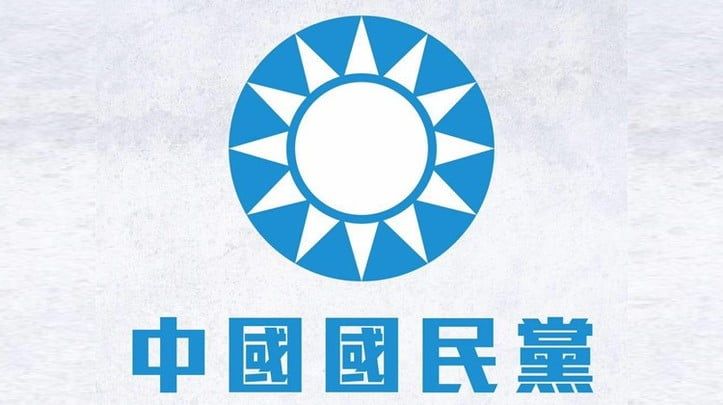
The last two straws that broke the camel's back
In addition to the successive failures of operations behind enemy lines, the Macau-Portugal government successfully raided an intelligence stronghold in February 1963, seized a batch of documents and took away a number of intelligence personnel. The Portuguese-Australian government followed suit based on the seized documents and successfully detained a number of intelligence personnel, which caused a great blow to the KMT's intelligence network in Australia.
Moreover, something worse happened soon after, which sounded the death knell of the Kuomintang's influence in Australia.
On December 13, 1964, Cheng Yiwu, a high-level intelligence officer who was also the "Leader of the Second Group of the Kuomintang's Macao Dispatch Group" and the "Director of the Macao Station of the Ministry of Defense Intelligence", suddenly defected and defected from Macao to Guangzhou. For a long time, there have been different opinions on the reasons for Cheng Yiming's defection. The author believes that the most fundamental reason is related to the deterioration of the overall environment.
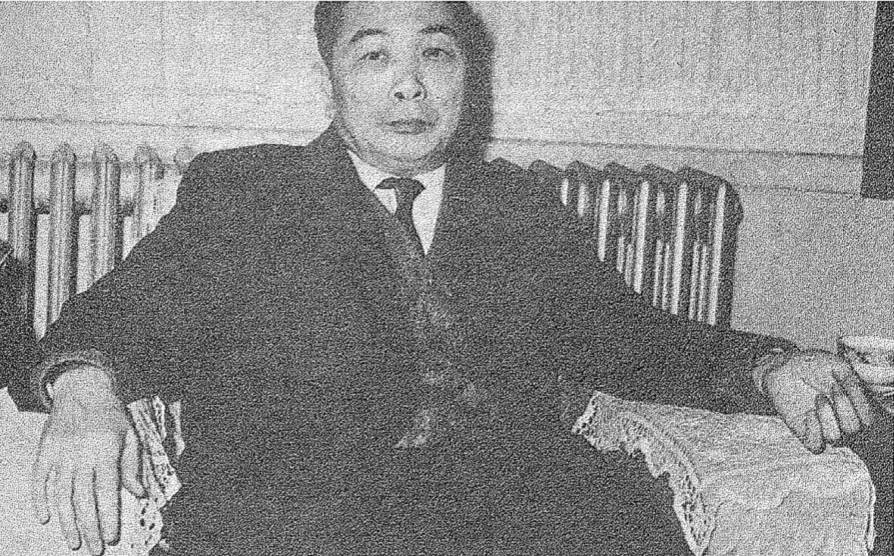
With the continuous failure of operations behind enemy lines, Cheng Yiming, as a high-level intelligence officer in Australia, will inevitably have to bear certain responsibilities if the Kuomintang is held accountable. Even if the Kuomintang does not pursue accountability, but continues to demand Cheng Yiming to plan behind enemy lines with a high probability of failure, the result will only lead to a counterattack from the Macau-Portugal government and the CCP, which will bring harm to itself.
Cheng Yiming's defection had a huge impact on the Kuomintang's influence in Australia, and the most direct result was the closure of the Macao Office. According to the intelligence brought by Cheng Yiming, the CCP accused the Portuguese-Australian government of condoning the Kuomintang’s anti-Communist activities, and asked the Portuguese-Australian government to close the Macao Office to curb such actions. With all the witnesses and materials, the Macao-Portuguese government had to make an appointment with the Macao Office and ordered the Macao Office to close it in person, otherwise the Macao-Portugal government would forcibly seal it up.
On March 29, 1965, after many unsuccessful negotiations, the Macao Office officially announced the end of its operation.
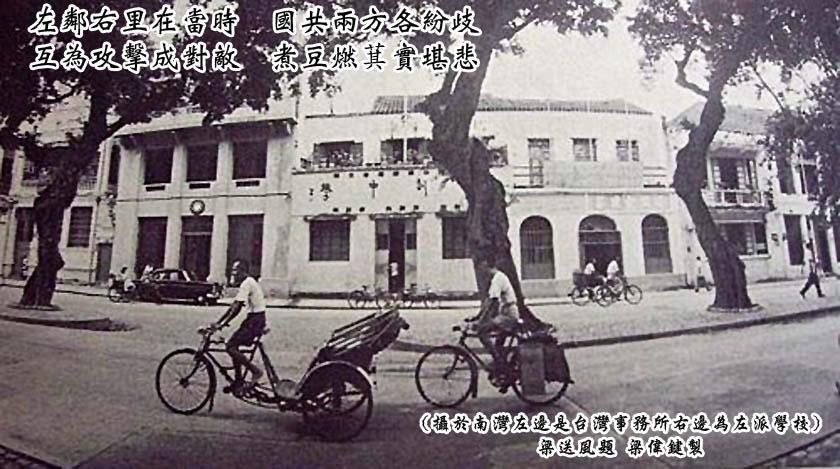
The reason why the Macao Office is targeted is that, as an official unit in Australia, it has always been a thorn in the eyes of the CCP, and the second is that the Macao Office is indeed involved in intelligence activities. According to the documents of the Ministry of Foreign Affairs, after learning of Cheng Yiming's defection, the Macao Office immediately sent a telegram requesting the intelligence agencies not to send intelligence to the Macao Office in the name of "diplomatic mail". In addition to passing intelligence, it is unclear whether the Macao Office has been more deeply involved in other intelligence activities (such as planning activities behind enemy lines).
Cheng Yiming's defection also put the Kuomintang forces in Macau under enormous psychological pressure. In addition, according to the information provided by Cheng Yiming, the CCP made a list of more than a dozen people, and asked the Macau-Portugal government to take immediate action against them.
For a time, the Kuomintang forces in Australia panicked and were extremely worried about their own safety. When the "123 Incident" happened, this sentiment made the Kuomintang forces in Australia collapse.
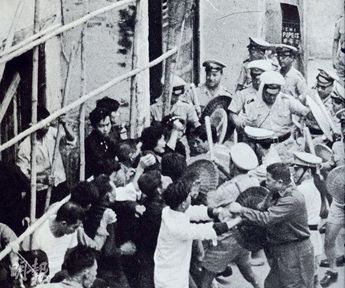
In November 1966, a leftist school was found to have expanded its campus without permission. The Macau-Portuguese government forced the school to suspend work, causing conflict and 34 people were injured by the police. The school then listed five demands to the government:
- Severely punish the perpetrators of bloodshed;
- Do not prevent us from repairing school buildings and running schools;
- Compensate the victim for all damages;
- set aside the unreasonable judgment;
- Guarantee that similar incidents will not happen again in the future.
The then-governor of Macau, Galopei, admitted that there were inadequacies in handling the incident, and would thoroughly investigate the incident and severely punish those who made mistakes. The leftists were dissatisfied with the Australian Governor's response and decided to stage a demonstration to protest.
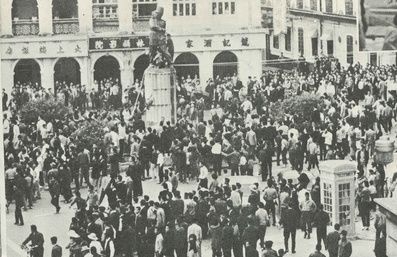
On December 3, the demonstrators clashed violently with the police. In order to disperse the crowd, the police dispatched water cannons, tear gas, and even used live ammunition to suppress them by force. Some people were unfortunately shot and killed in the incident. The news made the angry people even more angry, and the situation gradually expanded, leading to the "123 Incident".
Later, leftists sought help from the CCP. On December 9, the director of the Foreign Affairs Office of Guangdong Province issued four major demands to the Macao-Portuguese government, including accepting the public’s previous demands, severely punishing the officials involved, and “truly guaranteeing that Jiang bandit spy agents will never be allowed in Macao in the future . carry out any activities, and hand over the seven secret agents (namely Luo Guang and other seven) who were picked up by the Portuguese authorities in Macau in June 1963 for trespassing into Chinese waters to the Chinese government." Come in.
Faced with the severe crisis of colonial governance, the colonial home country Portugal decided to compromise in order to quell the incident and continue to maintain the colonial governance of Macau. On December 12, the Macao-Portugal government announced that it would accept the demands of the masses and the Guangdong Provincial Foreign Affairs Office, and on the 20th transferred seven people including Luo Luo.
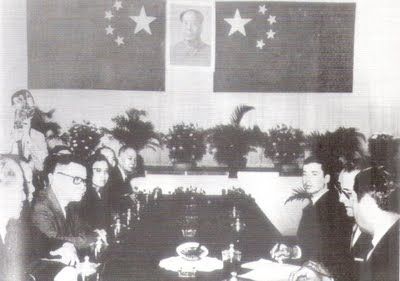
On January 28 of the following year, the Macao-Portugal government signed an agreement with representatives of the protesters. The text of the agreement promised that "the Jiang Gang will never be allowed to carry out any activities in the Macao area." organize.
In fact, long before the Macau-Portugal government officially signed the agreement, many members of the pro-KMT had fled to Hong Kong to avoid disaster. The forces in Australia have completely collapsed, and there is no need for the Macau-Portugal government to take action to eliminate it. So far, the Kuomintang has come to an end in Macau.
Epilogue
The Kuomintang's forces in Macau have faced a series of challenges since the early 1960s. Although the Kuomintang's unwillingness to give up using Macau to conduct operations behind enemy lines is directly related, it is also related to the general environment.
At that time, there had always been rumors that Portugal intended to establish diplomatic relations with the CCP, and it was very likely that Portugal would continue to suppress the Kuomintang in order to show goodwill to the CCP.
In addition, readers may be confused as to why the operations behind enemy lines have repeatedly failed, and the CCP and the Portuguese-Australian government have fought back, and the Kuomintang still insisted on launching.
Since the operations behind enemy lines are all planned by the intelligence agencies, and the author mainly uses the files of the Ministry of Foreign Affairs as research materials, and the files of the relevant intelligence agencies have not been opened yet, I hope that there will be an answer when the files are opened one day.
#Number of articles: 9️⃣3️⃣
💬 Stories of [Telling Stories on the Frontier of the Empire] |📁Article List |👍Facebook Page |📣 Call for Papers
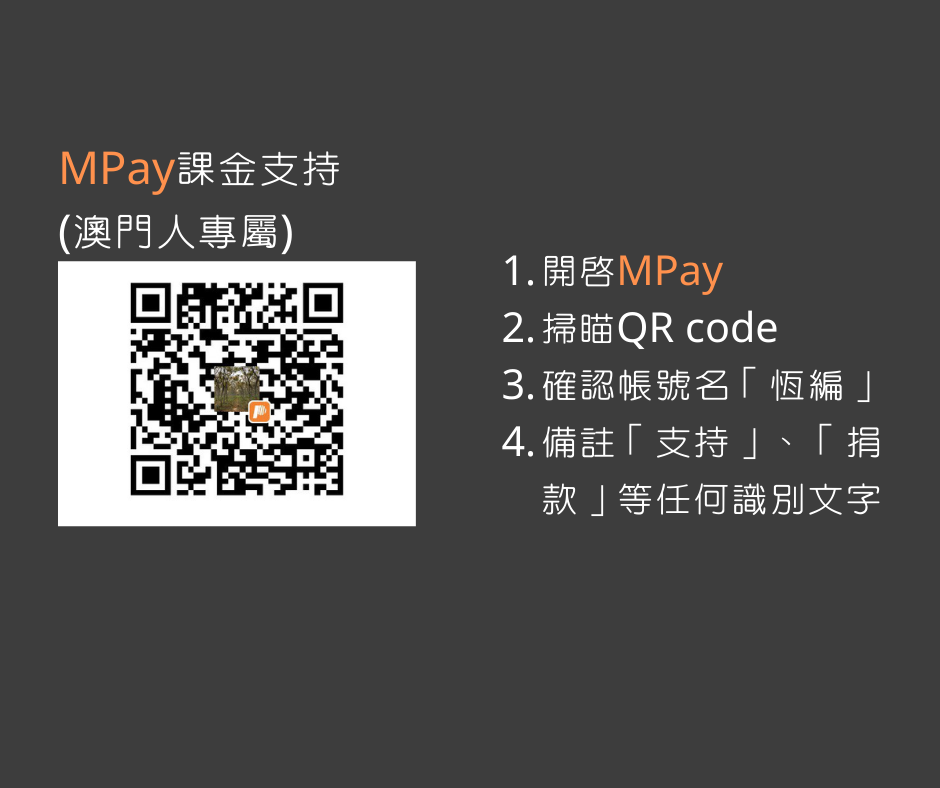
Like my work? Don't forget to support and clap, let me know that you are with me on the road of creation. Keep this enthusiasm together!

